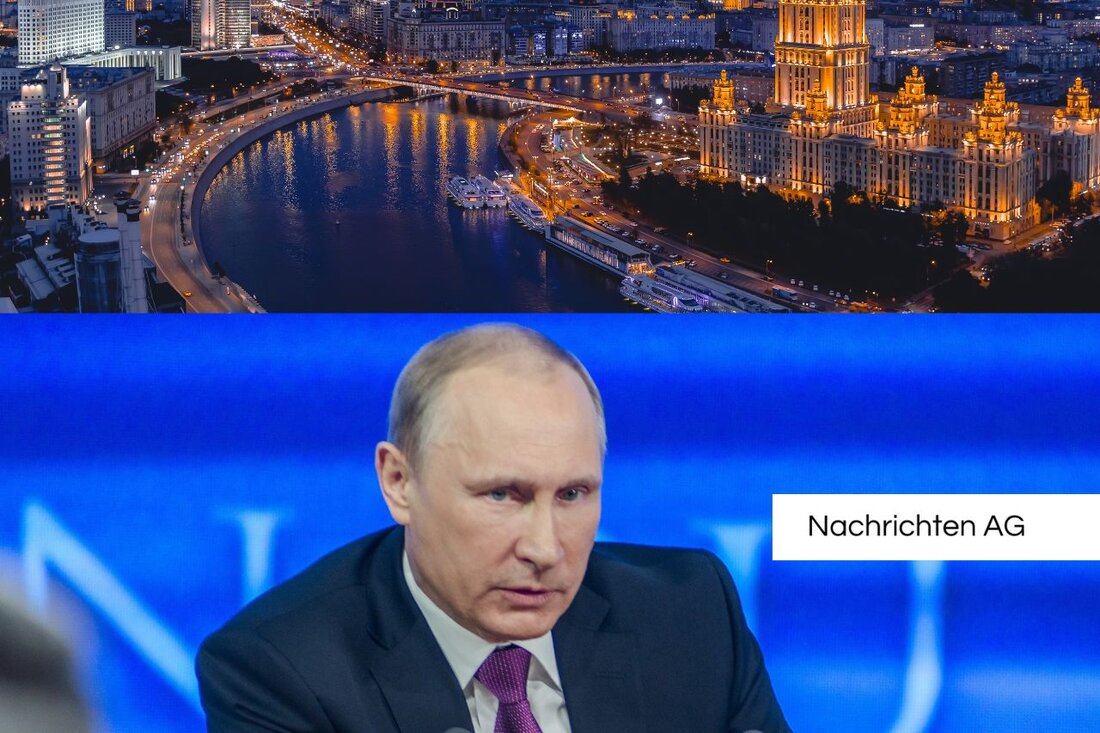Challenges of security guarantees for Ukraine
Security guarantees have become a central topic in the discussions about a peace treaty for Ukraine. President Wolodymyr Selenskyj said on Monday in the White House that this was the "key topic and the starting point for the termination of the war". Challenges and goals of the Selenskyj Security Guarantees know that the superior number and armament of Russia in the long run ...

Challenges of security guarantees for Ukraine
Security guarantees have become a central topic in the discussions about a peace treaty for Ukraine. President Wolodymyr Selenskyj said on Monday in the White House that this was the "key topic and the starting point for the termination of the war".
Challenges and goals of the security guarantees
Selenskyj knows that the superior number and armament of Russia in the long run will pull Ukrainian resistance. Therefore, he has repeatedly emphasized that every agreement must contain assurances that the United States and Europe prevent the Russians from resuming their attacks in one or two years.
Here you can find out what you should know about this crucial aspect of every agreement to terminate the war in Ukraine.
How could security guarantees look and who is involved?
It is uncertain terrain: the "coalition of the willing", a group of important Ukrainian ally, still works on what it can realistically offer. The goal is clear: to prevent the Russians of new attacks on Ukraine in the coming years. The exact plan is less clear, but there will probably be a strategy to station troops on site and to support Ukraine from the air and from the sea. In addition, help will be necessary to rebuild the exhausted Ukrainian military.
Selenskyj also argues that a strong Ukrainian military itself is a security guarantee. French President Emmanuel Macron emphasized the support of the allies for "a robust Ukrainian army who can react against attacks and ward off them without restrictions on troop strength, skills or weapons."
International cooperation and willingness to troops
The United Kingdom and France used to develop the concept of a multinational force this year. UK Prime Minister Keir Strander said that this would "be provided after a ceasefire to deter Russian aggression over years." At first there was talk of 30,000 soldiers who were to be stationed in Ukraine. In the meantime, however, a smaller deterrent force is being discussed, supplemented by a “security network” of the allies, which includes air, sea and training elements.
About 30 countries have joined the coalition. However, what every country is willing to do is unclear. Countries such as Germany and Italy are hesitant to sign soil troops, while Australia and Canada may be more willing.
"The coalition would provide Ukraine soothing forces at sea, in the air and to land," said Macron on Monday. He added: "We have to support Ukraine with soil troops to prevent the future interventions from Russia."
The influence of the United States
This is the elephant in the room. Only in the past few days has US President Donald Trump considered the idea that the United States could be involved in providing security guarantees for Ukraine. Previously, he and other members of the administration had made it clear that the Europeans were responsible. Trump was vague regarding the scope of the commitment in the discussions in the White House. He suggests that guarantees are "offered by different European countries in coordination with the United States."
On Tuesday, however, Trump rejected the opportunity to station US troops on Ukrainian soil. "What it will mean specifically-US engagement-will be discussed in the coming days," said NATO General Secretary Mark Rutte in an interview.
The reaction of Russia
On Monday, Russia again emphasized that no NATO country troops could be stationed on Ukrainian soil. The spokeswoman for the Foreign Ministry, Maria Zakharova, rejected "every scenario that provides for the appearance of a military contingent with the participation of NATO countries in Ukraine." Moscow also insists that every peace agreement must contain restrictions on the number and skills of the Ukrainian armed forces. Russia claims to also earn security guarantees and has repeatedly emphasized that NATO east expansion is one of the main causes for the conflict.
Alternatives and outlook
The possibility is increasingly being discussed that part of the security guarantee in the form of air protection for Ukraine is provided, similar to the no-fly zones in Iraq in the 1990s. According to the International Institute for Strategic Studies (IISS), the biggest deterrent effect could be achieved if not only ground troops but also air chimber elements in Ukraine. More air power could be stationed in Poland and Romania.
Such a presence would offer surveillance and education, but would have difficulty maintaining air sovereignty if it is challenged by the Russians. In addition, there was a risk of a quick escalation, for example if fighter planes are involved in air struggles.
However, the Ukrainians not only want participation, but a clear commitment to the international community.

 Suche
Suche
